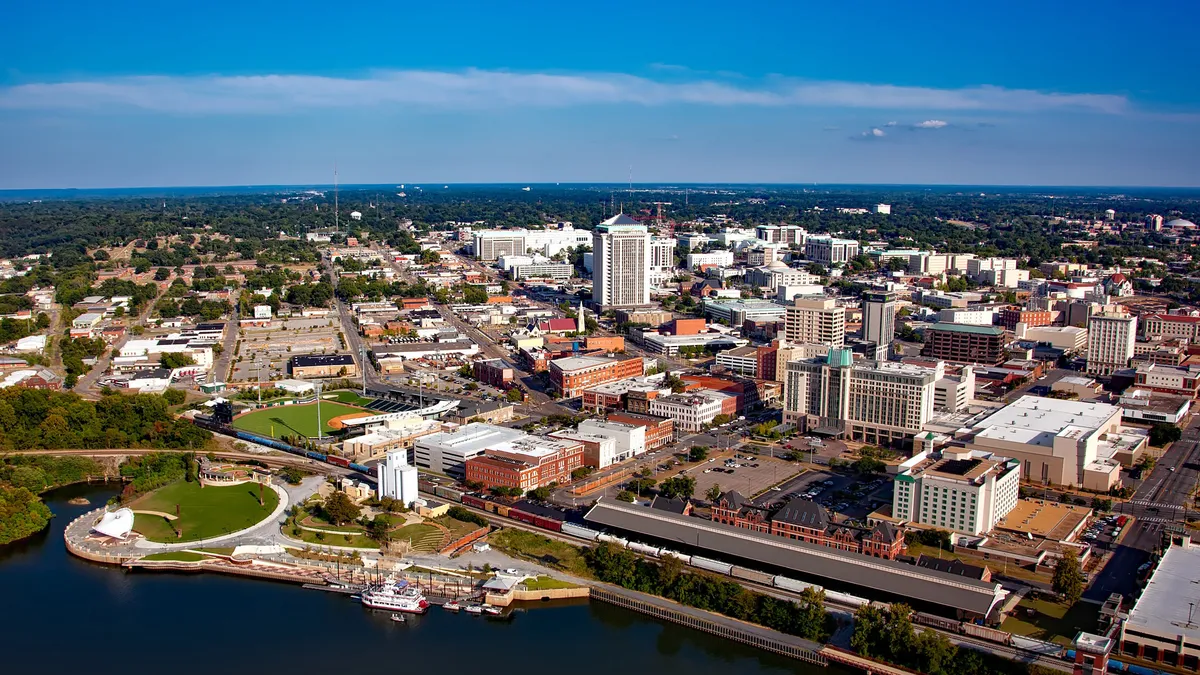UPDATE: Nov. 2, 2018: RePower South will now be opening the Montgomery facility in December, a delay from its original October target, according to the Montgomery Advertiser. City officials reported that about 15 employees are currently working to ready the facility for installation of what is now described as $6 million worth of equipment by December. The plant's second shift is expected to start in January.
UPDATE: June 20, 2018: RePower South has officially been selected to reopen the newly named Montgomery Recycling and Recovery Facility in Montgomery, Alabama. City officials have projected that recycling service will now resume in late 2018 via a mixed waste collection system.
RePower will spend $7 million on new equipment — as part of an estimated $12 million overall investment — to update the facility, according to the Montgomery Advertiser and other local outlets. The city doesn't expect to spend any money on this, and in fact has optimistically been touting the potential to earn up to $200,000 through a revenue sharing agreement.
The city also announced a new "smart cities" partnership with Rubicon Global for Montgomery Sanitation vehicles.
Dive Brief:
- As of March, Montgomery had narrowed its choice of companies to reopen the former Infinitus Renewable Energy Park (IREP) facility down to RePower South and Pratt Industries, according to multiple sources with direct knowledge of the process. Neither company could be reached for comment.
- At the time, Mayor Todd Strange told the Montgomery Advertiser that recycling could return later this year, but the facility would need $10-12 million in upgrades regardless of the approach. According to Strange, the city is prioritizing mixed waste, "just like it used to be," because "the payback for us is the avoidance of the landfill."
- RePower has proposed converting some of the material into a refuse-derived fuel that could serve as a coal alternative for cement manufacturers. That would cost an additional $3-5 million. Pratt's single-stream approach, seen as a secondary option by city officials, would also require funding for carts and collection infrastructure. This could be subsidized with expected grants from the Alabama Department of Environmental Management and nonprofit sources.
Dive Insight:
The $37 million IREP facility was open for less than two years — from May 2014 to Oct. 2015 — and has become a somewhat controversial symbol for the potential of mixed waste processing. Critics often point to it as a sign that the concept doesn't work in this form. Proponents say the technology was sound, but the business model wasn't. Since then the city has been mired in bankruptcy court, and Montgomery residents have gone without recycling, as many potential operators shied away.
In late Dec. 2017, Montgomery finally acquired the facility for a collective $945,000. After forgiving an additional $2.5 million that IREP owed, and now carrying full title to the remaining $29 million in debt on the property, Montgomery has a strong interest in getting this resolved. Talk began to heat up at the time around one of three operators coming in to resume service.
Yet the tonnage question has vexed all involved for years and remains an underlying factor in current discussions. IREP was designed to be profitable with 150,000 tons per year. In 2015, the facility took in only 102,000 tons from Montgomery and parts of Florida.
Sticking with the mixed waste approach wouldn't fully answer this question, but does require less of a lift in terms of tonnage. The RDF concept proposed by RePower is also seen as a way to offset the volatility of commodity prices. While the Southeast has more domestic end markets than other regions, it has still felt recent effects.
At the same time, RePower's track record is seen as less established. The company faced a serious setback last year when plans for a $100 million facility were canceled by the Southeastern Public Service Authority in Virginia. Plans for a new project were recently announced in South Carolina.
Supporters of a more traditional single-stream approach view this as the latest attempt by Mayor Strange to find a silver bullet solution. After canceling Montgomery's curbside recycling program when he took office in 2009, the city also considered a plasma gasification concept before going with the IREP model. Now, years later, Montgomery is once again one of the largest cities in Alabama without any curbside recycling service.
To rectify that, the Southeast Recycling Development Council (SERDC) has previously studied how Montgomery could become a regional processing hub. According to a 2016 report, SERDC estimated that this approach could yield more than 142,000 tons of material from dozens of counties.
Based on its proven experience in the field, and fast-growing network of domestic paper mills, Pratt could be a good candidate to take that on. Yet this model also assumes that a lot of moving pieces, and resident participation without contamination, would have to fall into place.
Correction: A previous version of this article cited reporting from the Montgomery Advertiser which misinterpreted RePower's initial start date.















